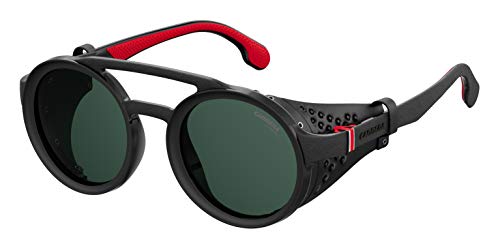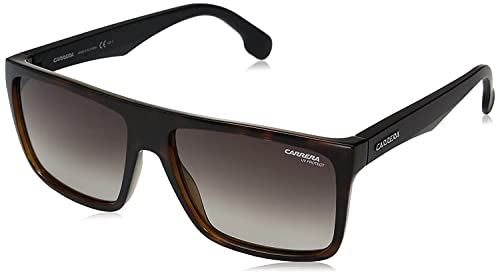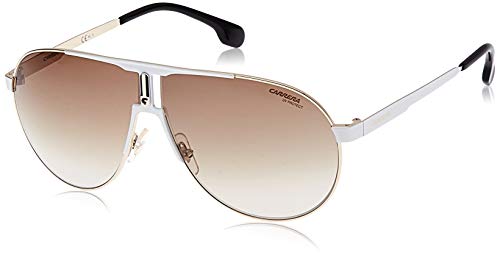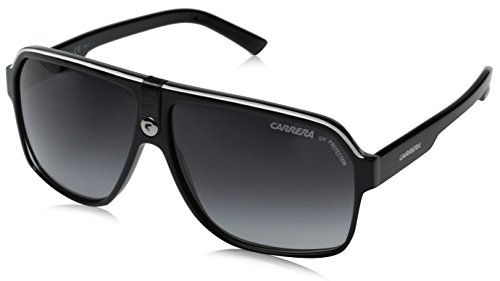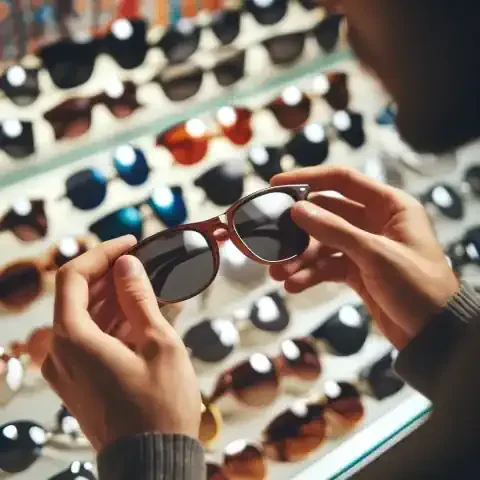Introduction
Sunglasses are more than just a fashion accessory; they're essential for protecting your eyes from harmful UV rays and reducing glare in bright conditions. However, simply owning a pair of sunglasses isn't enough. To ensure they provide optimal protection and maintain their quality over time, it's crucial to care for them properly. In this comprehensive guide, we'll explore everything you need to know about caring for your sunglasses, from cleaning and storage techniques to long-term maintenance strategies.
Sunglasses serve a dual purpose: they enhance our style while shielding our eyes from harmful ultraviolet (UV) radiation. Beyond being a fashion statement, they're a vital tool in safeguarding our eye health, preventing conditions such as cataracts, macular degeneration, and photokeratitis (sunburn of the cornea). Yet, the longevity and efficacy of sunglasses are contingent upon how well we care for them. Neglecting maintenance can lead to scratched lenses, warped frames, and compromised UV protection. Thus, understanding the nuances of sunglass care is essential for preserving both their aesthetic appeal and protective function.
Understanding Your Sunglasses
Sunglasses are available in a myriad of materials and designs, each with its own set of characteristics and vulnerabilities. By comprehending the intricacies of your sunglasses' construction, you can tailor your care routine to suit their specific needs. Frame materials commonly include plastic, metal, and nylon, each offering distinct advantages in terms of durability, flexibility, and weight. Plastic frames, for instance, are lightweight and resistant to corrosion, making them ideal for everyday wear. Metal frames, on the other hand, are renowned for their strength and stability but may be prone to rusting or bending if mishandled. Nylon frames strike a balance between the two, offering durability and flexibility without sacrificing comfort.
Likewise, lenses are available in various materials, such as glass, plastic, or polycarbonate, each with its own unique properties. Glass lenses provide exceptional clarity and scratch resistance but are heavier and more prone to shattering upon impact. Plastic lenses are lightweight and impact-resistant, making them ideal for sports and outdoor activities, but may be more susceptible to scratches. Polycarbonate lenses offer a compromise between the two, providing excellent impact resistance and lightweight comfort, making them a popular choice for safety eyewear and sports goggles.
In addition to material composition, lenses may feature specialized coatings to enhance performance and durability. Polarized lenses, for example, reduce glare by filtering out horizontally polarized light, making them ideal for outdoor activities such as fishing, skiing, and driving. Mirrored coatings reflect light away from the eyes, further reducing glare and enhancing visual comfort in bright conditions. Understanding the nuances of your sunglasses' construction allows you to make informed decisions when selecting cleaning products and maintenance techniques to prolong their lifespan and optimize their performance.
Cleaning Your Sunglasses
Proper cleaning is paramount for maintaining clear vision and prolonging the life of your sunglasses. Over time, dirt, oils, and debris can accumulate on the lenses, compromising their clarity and effectiveness. By following a few simple steps, you can ensure your sunglasses remain clean and pristine for years to come. Before cleaning your sunglasses, gather the necessary materials: a microfiber cloth, lens cleaner solution, and a soft-bristled brush. Avoid using harsh chemicals or abrasive materials, as these can scratch or damage the lenses.
Start by rinsing your sunglasses under lukewarm water to remove any loose dirt or debris. Avoid using hot water, as it can cause the lenses to warp or delaminate. Next, apply a small amount of lens cleaner solution to the lenses and gently wipe them in a circular motion with the microfiber cloth. Be sure to use a gentle touch to avoid scratching the lenses. For stubborn stains or residues, you can use a soft-bristled brush to gently scrub the affected areas. Avoid using excessive force, as this can damage the lens coatings or scratch the lenses.
Once clean, rinse your sunglasses again under lukewarm water to remove any remaining cleaner residue. Avoid using soap or detergent, as these can leave behind a film that can affect visibility. Finally, pat your sunglasses dry with a clean, lint-free cloth to prevent water spots or streaks. Avoid using paper towels or tissues, as these can leave behind lint or scratch the lenses. By following these simple steps, you can keep your sunglasses clean and clear, ensuring optimal vision and performance in any environment.
Proper Storage Techniques
How you store your sunglasses when they're not in use can significantly impact their lifespan and condition. Proper storage is essential for preventing scratches, dents, and other damage that can occur when sunglasses are left unprotected. The most effective way to store your sunglasses is in a protective case specifically designed to fit their shape and size. A good quality case will shield your sunglasses from dust, dirt, and moisture, as well as cushion them against accidental drops or impacts.
If a case isn't available, a soft microfiber pouch can provide a temporary storage solution. However, pouches offer less protection than cases and may not prevent damage from occurring if the sunglasses are subjected to rough handling or pressure. When using a pouch, take care to avoid placing heavy objects on top of it or crushing it, as this can damage the sunglasses inside. Additionally, avoid storing your sunglasses in a pocket or bag without a protective case or pouch, as they can easily become scratched or bent when jostled against other objects.
When storing your sunglasses, choose a cool, dry location away from direct sunlight and extreme temperatures. Avoid leaving them in hot cars or on windowsills, as prolonged exposure to heat can cause the frames to warp or the lenses to delaminate. Similarly, avoid storing them in humid environments, as moisture can lead to mold or mildew growth, especially if the sunglasses are stored for extended periods without being used. By following these simple storage guidelines, you can protect your sunglasses from damage and ensure they remain in optimal condition for years to come.
Protection from Environmental Factors
Sunglasses are often exposed to a range of environmental factors that can affect their performance and longevity. UV protection is paramount, as prolonged exposure to ultraviolet radiation can damage the eyes and increase the risk of cataracts, macular degeneration, and other eye conditions. Look for sunglasses that offer 100% UV protection to ensure your eyes are adequately shielded from harmful UV rays. In addition to UV exposure, sunglasses may also encounter other environmental hazards such as sand, saltwater, and chemicals, particularly if worn during outdoor activities or near bodies of water.
To protect your sunglasses from these elements, it's essential to rinse them with fresh water after exposure and wipe them dry with a clean, lint-free cloth. Avoid using harsh chemicals or abrasive materials, as they can damage the lenses and frames. If your sunglasses come into contact with saltwater or chlorine, be sure to rinse them thoroughly with fresh water to remove any residue that could cause corrosion or degradation. Additionally, avoid leaving your sunglasses exposed to extreme temperatures or direct sunlight, as this can cause warping or discoloration of the frames and lenses.
When not in use, store your sunglasses in a protective case or pouch to prevent damage and keep them clean and dry. Avoid leaving them on surfaces where they can easily be knocked over or stepped on, as this can cause scratches or dents. By taking these simple precautions, you can protect your sunglasses from environmental damage and ensure they continue to provide optimal protection and performance for years to come.
Maintenance and Repairs
Regular maintenance is essential for ensuring that your sunglasses remain in good condition and continue to provide optimal protection and performance. Periodically inspect your sunglasses for signs of wear and tear, such as loose screws, damaged hinges, or worn nose pads. If you notice any issues, address them promptly to prevent further damage and ensure your sunglasses remain safe and comfortable to wear.
One common maintenance task is tightening screws and hinges to ensure they remain secure. Use a small screwdriver to tighten any loose screws, taking care not to overtighten them, as this can strip the threads or damage the frame. If a screw is missing or damaged, replace it with a matching screw from a repair kit or contact the manufacturer for assistance. Similarly, if the hinges on your sunglasses are loose or damaged, consider having them repaired by a professional to ensure they function correctly and securely.
In addition to regular maintenance, occasional repairs may be necessary to address more significant issues such as scratched lenses or broken frames. For minor scratches, you can use a lens repair kit to polish the affected area and restore clarity. However, for more severe damage or structural issues, it's best to seek professional assistance from an optician or eyewear repair specialist. Attempting DIY repairs on complex issues could worsen the damage and compromise the integrity of your sunglasses.
By staying vigilant and addressing maintenance issues promptly, you can prolong the life of your sunglasses and ensure they continue to provide optimal protection and performance for years to come.
Avoiding Common Mistakes
Despite your best efforts, it's easy to make mistakes that can damage your sunglasses if you're not careful. One common mistake is using clothing or paper towels to clean the lenses, as these materials can leave behind lint or scratches. Instead, always use a soft microfiber cloth specifically designed for cleaning lenses. Similarly, avoid using harsh chemicals or abrasive materials, as these can damage the lens coatings or scratch the lenses.
Another common mistake is leaving your sunglasses exposed to extreme temperatures or direct sunlight for extended periods. Prolonged exposure to heat can cause the frames to warp or the lenses to delaminate, compromising their fit and functionality. Similarly, leaving your sunglasses on the dashboard of your car or on a windowsill can expose them to intense sunlight, leading to discoloration or warping of the frames and lenses. When not in use, store your sunglasses in a cool, dry place away from direct sunlight and extreme temperatures to protect them from damage.
Additionally, avoid placing your sunglasses lens-down on hard surfaces, as this can scratch the lenses or cause them to become misaligned. When not wearing your sunglasses, always store them in a protective case to prevent accidental damage. By avoiding these common mistakes and following proper care and maintenance guidelines, you can ensure your sunglasses remain in optimal condition and continue to provide optimal protection and performance for years to come.
Sunglasses Care for Specific Activities
Different activities may require specific care considerations to ensure your sunglasses remain in optimal condition and continue to provide optimal protection and performance. For example, if you're participating in sports or outdoor activities, you'll need sunglasses that are durable and impact-resistant to withstand rough handling and potential collisions. Look for sunglasses with wraparound frames and shatterproof lenses for added protection. Water sports enthusiasts should also take extra precautions to protect their sunglasses from saltwater and chlorine, as these can corrode the frames and degrade lens coatings over time.
Investing in a floating strap or retainer can help prevent loss if your sunglasses are knocked off in the water. Similarly, if you're spending time in snowy conditions, consider using a strap or retainer to secure your sunglasses to your head or helmet to prevent them from falling off or getting lost in the snow. By taking these simple precautions, you can protect your sunglasses from damage and ensure they continue to provide optimal protection and performance for years to come.
Long-Term Care Strategies
While proper maintenance and care can help prolong the life of your sunglasses, it's essential to implement long-term care strategies to ensure they continue to perform optimally. Avoid leaving your sunglasses exposed to prolonged periods of sunlight or extreme heat, as this can cause the frames to warp or the lenses to delaminate. When not in use, store your sunglasses in a cool, dry place away from direct sunlight.
Additionally, consider investing in a protective coating for your lenses to help repel water, oil, and dirt, making them easier to clean and maintain. Some coatings also provide added scratch resistance, helping to prolong the life of your sunglasses and keep them looking new for longer. By following these simple long-term care strategies, you can protect your sunglasses from damage and ensure they continue to provide optimal protection and performance for years to come.
Conclusion
Caring for your sunglasses is essential for preserving their quality and protecting your eyes from UV damage. By following the tips and techniques outlined in this guide, you can ensure that your sunglasses remain in optimal condition for years to come. Remember to clean them regularly, store them properly, and address any maintenance issues promptly to keep your sunglasses looking great and performing at their best. With the right care and attention, your sunglasses will continue to shield your eyes and enhance your vision whenever you need them.

